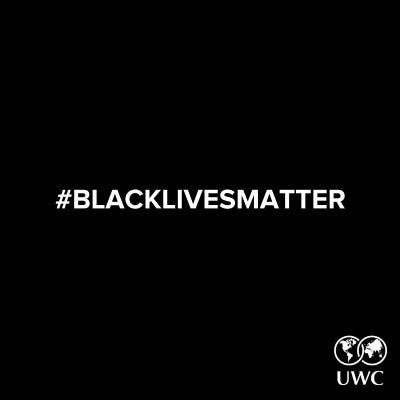I’m grateful to be writing to you from New York City,
I’ve lived in the USA for almost 6 years now and this week has been one of the most difficult yet. It’s like this country is having the same bad dream, over and over again: A nightmare where black people die at the hands of the police who are meant to protect them. A nightmare where racism prevails and justice is either slow or not present.
George Floyd, Breonna Taylor. Killed at the hands of police.
Ahmaud Arbery killed by racists who were not charged until 2 months after his death.
These people were the latest known victims of an unjust system.
Protests against police brutality and racism have erupted in all 50 states, amidst feelings of exhaustion and fear the perpetrators won’t be brought to justice and that the cycle will continue.
Acknowledging facts
I was born just after the fall of the Apartheid government in South Africa. I am, as they say, a child of the “new South Africa”.
I’m so grateful and indebted to the people who dedicated their lives to protest and dismantle the racist Apartheid government in South Africa. A vast majority of those freedom fighters were black. Without black people, I wouldn’t be able to live a life of freedom, where I can pursue my passions and interests and do things that my ancestors could never do, like study abroad and write newsletters on a Thursday night for you to read.
The Right Side of History
In two weeks, it will be June 16, a public holiday in South Africa. The holiday commemorates the Soweto Uprising, where black youth protested Afrikaans as the language of instruction in school. On 16 June 1976, police opened fire on protesting students and killed more than 176 of them. The iconic photograph below, taken by Sam Nzima, shows Hector Pieterson, being carried away by Mbuyisa Makhubo, after being shot by South African police. Hector Pieterson was declared dead on his arrival to a hospital.

(Learn more about the Soweto Uprising and Hector Pieterson)
I sometimes wonder what I would’ve done had I been alive during Apartheid. It’s easy to say that I would’ve stood up for what’s right, fought to dismantle Apartheid and not played within the system to advance my own life. It’s easy to say that because I know how the story ends and which side won.
Even though it’s been 26 years since Apartheid ended, there have been, and will continue to be moments in my life, both personal and professional, to advance humanity, justice and anti-racism. This uprising in the USA right now against police brutality and racism is one of those moments. I’ve come to learn that fighting for equality, freedom and justice will always be the right side of history.
Being on the right side of history matters.
Standing up for humanity matters.
Black lives matter.
Tend to the Part of the Garden You Can Touch
Overwhelmed that your garden is full of weeds?
What do you do?
Tend to the part of the garden you can touch.
If growing up in the race-concious society of post-apartheid South Africa taught me one thing, it’s that we need both top down (institutional) and bottom up (individual) change.
Institutional change plays a crucial role in ensuring that we can all live in a just, equal and free society. This is why changing laws like Qualified Immunity, questioning the power of police unions and voting for local and federal leaders is extremely important. However, racism can still remain even after racist institutions and laws themselves are brought down.
Of equal importance is the role that each of us can play in order to stamp out racism in our families, friend groups and communities. This is something impactful we all can do, even if we don’t have the financial means to donate or can’t vote (as is my case in the USA).
For me that means fostering understanding of anti-racism and changing mindsets of friends, family and people in my professional network, conversation by conversation, interaction by interaction. It also means mentoring and helping fellow people of color and underrepresented individuals advance in education and the tech world and calling out racism in these fields.
My friend Kameel encapsulated this idea very well in this tweet:

We all have a part of the garden that we can tend to, whether it’s here in the USA, in South Africa or whichever country you’re reading this from.
Let’s tend to it.
How to Help
Apart from tending to our own gardens, there’s action that we can take now.
Here’s a collection of resources including places to donate, petitions to sign and materials to learn more and educate yourself and others about anti-racism.
Here’s another collection of resources.
Here’s a thread on how to help:

I’m grateful for friends and strangers who’ve been sharing useful resource lists on social media. You’ve probably seen plenty of them.
There’s plenty of resources to help us to take action.
Let’s act against racism.






